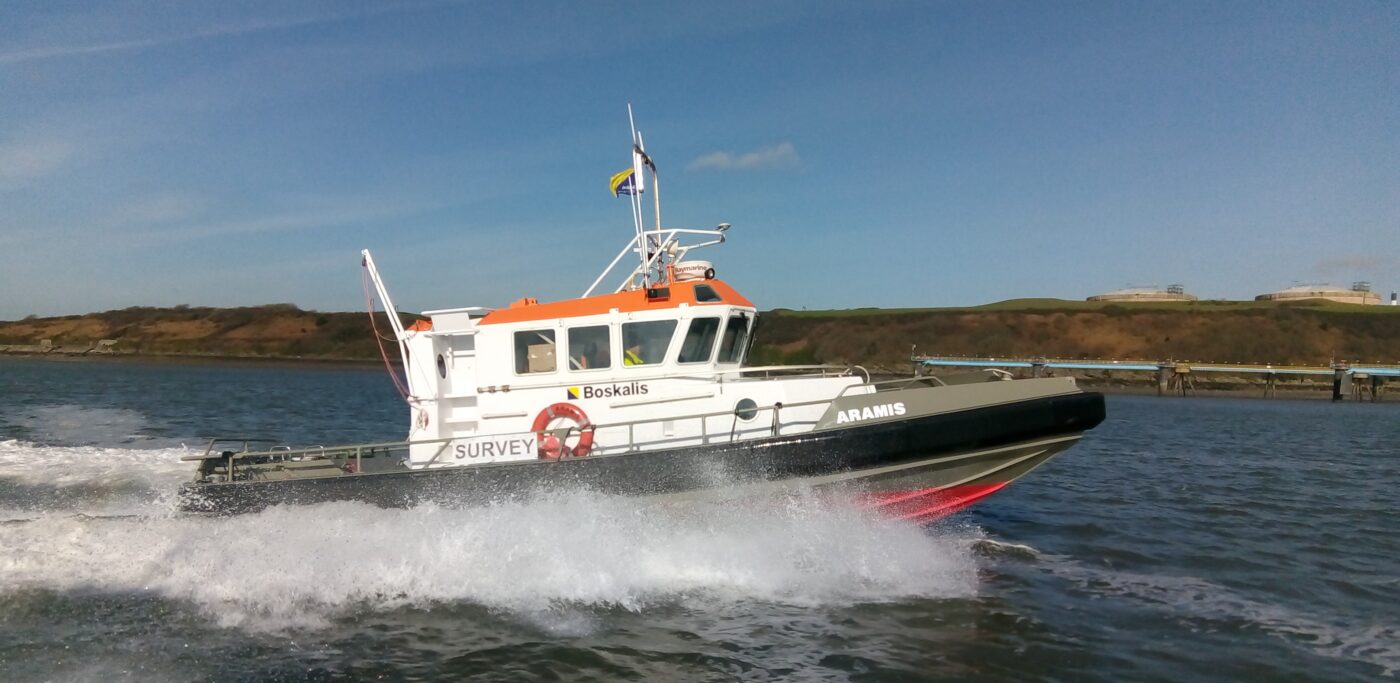Press release by Tamarindo Communications
“The group aims to foster open discussion of engineering solutions to current and future issues in the workboat sector.
Andy Page, Managing Director of Chartwell Marine has been selected as chairman of group, he brings with him extensive contacts and a proven industry track record”
Southampton, 8th June – The Workboat Association, the trade, skills and safety standards association for the workboat industry, have announced a new technical working group, with Andy Page of Chartwell Marine, a pioneer in next-generation vessel design, leading as Chairman.
The group aims to accelerate the decarbonisation of the workboat sector, in line with the Clean Maritime Plan, by taking a proactive approach to technical support for the supply chain and future technologies. Along-side decarbonisation efforts, the group expects to turn its attention to compliance, safety and specific rule requirements further down the line.
The first meeting took place on Tuesday 5th May 2020, featuring a presentation from Ørsted Offshore delegates on ‘The route to carbon neutral offshore logistics’, which mapped out a pathway to decarbonisation, while highlighting the importance for the industry to combine short term optimisation with long-term technology research and development. Operators in attendance at this first meeting included, Offshore Turbine Services, Maritime Craft Services and Williams Shipping. In its future sessions, the group will provide a sounding board for members to explore the various technologies available and debate the pros and cons, while promoting a culture of education through shared experiences.
As offshore wind continues the move towards decarbonisation, it is vital that the maritime supply chain is ready to meet these demands. Key players such as Ørsted Offshore have already set concrete goals ahead of government regulation. The working group aims to head off any future commercial challenges by aligning expectations across the industry. This supports a greater understanding within the sector on how technology can add value to assets, reduce costs and minimise harmful emissions.
Using the combined contacts of Chartwell Marine and The Workboat Association means that forthcoming meetings of the group will feature a broad range of industry stakeholders as both participants and speakers. Engine manufacturers, OEMs and vessel operators can share viewpoints and long-term goals in a transparent, non-commercial setting – supporting industries such as offshore wind as they look to a coordinated approach to technical challenges.
For instance, the US is leading on engine emission requirements criteria with EPA Tier 4 in place since January 2019. Chartwell Marine’s experience in that market has shown that the operational profile of vessels must be taken into account – and that conventional engines still have a huge role to play in the journey towards decarbonisation. The need for a holistic approach to vessel design has become even more pressing as the workboat sector prepares for IMO Tier III regulations globally.
Andy Page, Managing Director, Chartwell Marine, said: “The workboat sector is at a crossroads. To truly activate its global potential, key stakeholders must come together and discuss any obstacles from a technical perspective. I wanted to share my own experience in hybrid boats and hull forms, fuel burn and efficient operations with a view to fostering collaboration. It has been great to see so many others with completely different knowledge bases engaging to create an educational open forum – which ultimately benefits the whole industry.”
Kerrie Forster, Chief Executive Officer, The Workboat Association, added: “Andy was an obvious choice to chair this technical group. His impressive contact base from years of collaboration throughout the industry is matched by a genuine enthusiasm for engineering excellence. We are proud to be supporting both him and the wider industry through this working group, while continuing to take a proactive approach to tackling the main issues faced by our members.”
Kerrie continues, “It is important that we continue to recruit a diverse membership from all areas of the industry – along-side vessel operators and naval architects, the input in these meetings from consultants and seafarers provides an invaluable perspective and we very much look forward to engaging further with a variety of stakeholders in future meetings.”
The next meeting of the group is set to take place on 9th June.

